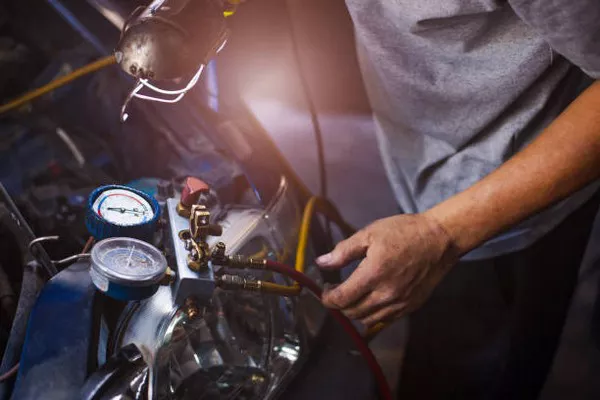When considering the replacement or installation of a Trane air conditioner compressor, it’s crucial to understand the various factors that influence the cost. This article will provide a comprehensive breakdown of these costs, offering insights into the pricing of Trane air conditioner compressors, the factors affecting these costs, and tips for making an informed purchasing decision.
What is an Air Conditioner Compressor?
The Role of the Compressor
The air conditioner compressor is a vital component of any HVAC system. It is responsible for compressing the refrigerant and circulating it through the air conditioning system. Essentially, the compressor acts as the heart of the system, ensuring that the refrigerant moves efficiently and effectively to remove heat from indoor air and transfer it outside. Without a properly functioning compressor, the air conditioning system cannot perform its cooling function.
Types of Compressors
There are several types of compressors used in air conditioners, each with its unique features and benefits:
- Reciprocating Compressors: These compressors use a piston to compress the refrigerant. They are known for their durability and efficiency.
- Scroll Compressors: These compressors use a spiral motion to compress the refrigerant. They are quieter and more energy-efficient compared to reciprocating compressors.
- Rotary Compressors: These are typically used in smaller systems. They are compact and cost-effective but may not be as durable as other types.
- Variable Speed Compressors: These compressors can adjust their speed based on cooling demand, offering greater energy efficiency and more precise temperature control.
Factors Influencing the Cost of a Trane Air Conditioner Compressor
Compressor Type and Efficiency
The type of compressor you choose will significantly impact the overall cost. High-efficiency compressors, such as variable speed or scroll compressors, tend to be more expensive than standard reciprocating compressors. However, the initial higher cost can be offset by long-term energy savings.
Size and Capacity
The size and capacity of the compressor, measured in BTUs (British Thermal Units), also play a crucial role in determining the cost. Larger compressors with higher BTU ratings are typically more expensive because they can cool larger spaces more efficiently. It’s important to choose a compressor that matches the cooling load requirements of your home or business to ensure optimal performance and efficiency.
Installation Costs
Labor Costs
The cost of labor for installing a new compressor can vary widely depending on the complexity of the installation and the rates charged by HVAC professionals in your area. Labor costs can range from $500 to $1,500 or more. Complex installations, such as those requiring modifications to the existing system or involving hard-to-access units, will generally be on the higher end of the spectrum.
Additional Parts and Materials
In addition to labor costs, there may be additional expenses for parts and materials needed for the installation. This can include refrigerant, electrical components, and mounting hardware. These additional costs can range from $100 to $500, depending on the specific requirements of your installation.
Cost Breakdown of a Trane Air Conditioner Compressor
Average Compressor Prices
The price of a Trane air conditioner compressor can vary based on the model and specifications. On average, you can expect to pay between $800 and $2,500 for the compressor unit itself. Here’s a rough breakdown based on different compressor types:
- Reciprocating Compressors: $800 – $1,500
- Scroll Compressors: $1,000 – $2,000
- Variable Speed Compressors: $1,500 – $2,500
Total Replacement Costs
When factoring in installation costs, the total cost to replace a Trane air conditioner compressor can range from $1,300 to $4,000. This estimate includes the cost of the compressor unit, labor, and any additional parts and materials required for the installation. The following is a breakdown of potential total costs based on compressor type:
- Reciprocating Compressors: $1,300 – $2,500
- Scroll Compressors: $1,500 – $3,000
- Variable Speed Compressors: $2,000 – $4,000
Tips for Choosing the Right Compressor
Consider Your Cooling Needs
When selecting a compressor, it’s essential to consider your specific cooling needs. Factors such as the size of your home, the climate in your area, and your energy efficiency goals should all play a role in your decision. Consulting with an HVAC professional can help you determine the appropriate size and type of compressor for your system.
Evaluate Energy Efficiency
Energy efficiency is a critical factor to consider when purchasing a new compressor. High-efficiency compressors, such as those with variable speed technology, can significantly reduce your energy consumption and lower your utility bills. Look for compressors with high SEER (Seasonal Energy Efficiency Ratio) ratings to ensure maximum efficiency.
Budget Considerations
While it’s essential to invest in a quality compressor, it’s also important to stay within your budget. Compare prices from different suppliers and consider the long-term savings associated with more energy-efficient models. Keep in mind that the cheapest option may not always be the most cost-effective in the long run due to potential higher energy costs and shorter lifespan.
Warranty and Maintenance
Ensure that the compressor you choose comes with a robust warranty to protect your investment. Trane compressors typically come with a 10-year limited warranty, but it’s important to verify the specific terms and conditions. Additionally, regular maintenance is crucial to prolong the lifespan of your compressor. Schedule annual inspections and tune-ups with a qualified HVAC technician to keep your system running smoothly.
Conclusion
Replacing a Trane air conditioner compressor is a significant investment, but understanding the factors that influence the cost can help you make an informed decision. The type and efficiency of the compressor, installation costs, and your specific cooling needs all play a role in determining the overall expense. By considering these factors and consulting with HVAC professionals, you can choose the right compressor for your system, ensuring optimal performance and energy efficiency for years to come.

